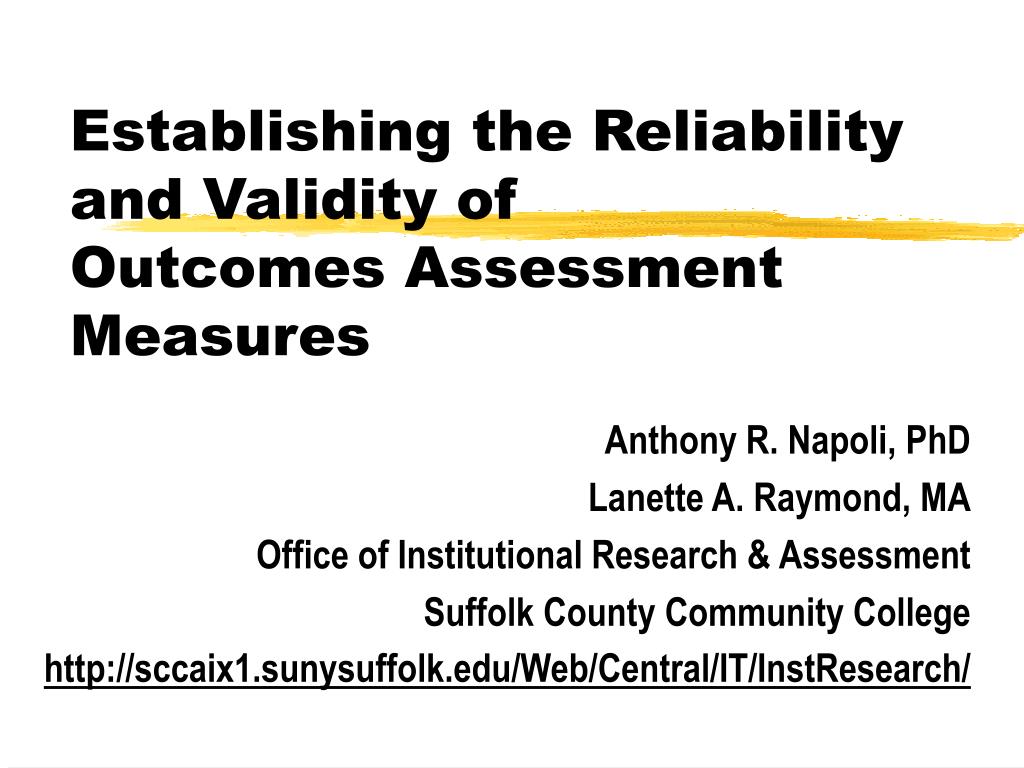

This is the degree to which two or more instruments, that are used to measure the same thing, agree on the result. Intra-rater (or intra-observer) reliabilityĪlso known as test-retest reliability, this describes the agreement between results when the instrument is used by the same observer on two or more occasions (under the same conditions and in the same test population).The degree of agreement between the results when two or more observers administer the instrument on the same subject under the same conditions. Inter-rater (or inter-observer) reliability.There are different means for testing the reliability of an instrument: Reliability is also known as reproducibility or repeatability.

A highly reliable measure produces similar results under similar conditions so, all things being equal, repeated testing should produce similar results. Reliability is the overall consistency of a measure. This can take the form of concurrent validity (where the instrument results are correlated with those of an established, or gold standard, instrument), or predictive validity (where the instrument results are correlated with future outcomes, whether they be measured by the same instrument or a different one). The subjective opinion for face validity can come from experts, from those administering the instrument, or from those using the instrument.Ĭriterion validity involves comparing the instrument in question with another criterion which is taken to be representative of the measure. In other words, does it “look like” it will measure what it should do. For example, a questionnaire aiming to score anxiety should include questions aimed at a broad range of features of anxiety.įace validity is the degree to which a test is subjectively thought to measure what it intends to measure. Construct validity subsumes the other types of validity.Ĭontent validity describes whether an instrument is systematically and comprehensively representative of the trait it is measuring.

For example, a measure of intelligence should only assess factors relevant to intelligence and not, for instance, whether someone is a hard worker. There are four main types of validity:Ĭonstruct validity is the extent to which the instrument specifically measures what it is intended to measure, and avoids measuring other things.

This is important if the results of a study are to be meaningful and relevant to the wider population. Validity is the extent to which an instrument, such as a survey or test, measures what it is intended to measure (also known as internal validity). We are currently in the process of updating this chapter and we appreciate your patience whilst this is being completed.


 0 kommentar(er)
0 kommentar(er)
